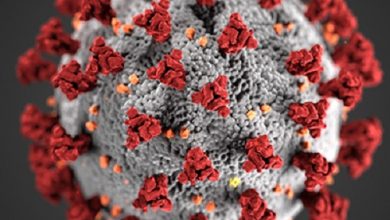‘Challenges and supports for adults with disabilities’

We continue our popular weekly HSE series during Covid-19 with the theme: “COVID-19 challenges and supports for adults with intellectual disabilities”.
The Psychology services for Galway, Mayo and Roscommon have been streamlining some key information for Boyletoday.com viewers each week based on the evidence of what works in similar circumstances. “Our themes will be around building resilience, coping with cocooning, managing relationships, caring for those with disabilities and other vulnerabilities and sharing supports for those who are ill or bereaved”.
HSE Psychologists Seamus Ryan and Claire Lacey together with psychology colleagues Denise Brett (Western Care Association), Tracy Parker (Ability West) and Maria Mannion (Brothers of Charity) have written the following article to help both adults with intellectual or developmental disabilities and their carers during the ongoing COVID-19 pandemic and associated restrictions.
Normal anxiety due to COVID-19
Daily news stories about COVID-19 can lead many of us to experience an overwhelming level of heightened anxiety. It can be difficult to take a break from conversations about COVID-19 at home, as well as from the debates on TV, radio, and social media. Many people are understandably worrying about illness, death, the impact on families, finance, education, employment, housing, and social isolation. People are experiencing some difficult but very normal feelings such as anxiety, fear, anger, frustration, irritation, sadness, loneliness, or boredom.
Challenges for adults with intellectual or developmental disabilities
In addition to the emotions experienced by the general population, people with intellectual disabilities may also face additional challenges:
· Many people with an intellectual or developmental disability may have an underlying medical condition which may make them more vulnerable to COVID-19, and may require cocooning.
· It may be harder for people with intellectual or developmental disabilities to understand what COVID-19 means, and the changes that are happening in our lives. For example, it may be confusing and frightening to see people wearing masks. It may also be difficult for someone with an intellectual disability to understand, or remember, to follow national guidelines in place e.g. remembering to stay 2 meters apart.
· They may depend on other people to meet their health, social and emotional needs, but these other people may not be available to support them at present. Disability service, however, are making use of technology to keep in contact with service users while face to face contacts may be taking place when all other avenues have been exhausted.
· People with intellectual disability are at an increased risk of experiencing mental health difficulties. As it is a stressful and unpredictable time, it is important that families and carers are aware of this increased vulnerability.
· If disability service providers start to have staffing shortages, people with intellectual disabilities may have to be supported by new, unfamiliar people. Despite best efforts by service providers, the new staff members will not have had a chance to develop trusting relationships which may cause the service user some anxiety.
· Routines are often very important, but routines may be disrupted during COVID-19. Transition and change of routine is often very difficult for people with intellectual or developmental disabilities. There may be a reduction in access to activities that help regulate people’s emotions, and substitute activities may not be accessible. Each service, however, is trying to develop tailored support for their most vulnerable groups.
· Day centres, training centres, and colleges may have closed, and this may have an impact on people’s meaningful engagement in valued social roles, possibly leading to increased loneliness and mental health challenges. It is also difficult to cope with the uncertainty of when services will return for individuals and their families.
· Strained relationships may occur as families rearrange their lives to provide more of their own support to an adult with an intellectual disability, whilst at the same time trying to juggle their own changed circumstances.
· People with an intellectual disability often have communication difficulties which can make their worries or concerns hard for them to express, and sometimes for families or carers to identify.
· Sometimes people with intellectual disabilities can engage in behaviours of concern in an attempt to communicate or to cope with overwhelming emotions.
What changes might we notice in people with intellectual disabilities?
· Preoccupation with the news.
· Experiencing (normal) feelings of anxiety, fear, worry, sadness, or anger.
· Feeling tense, uptight, uneasy or worried about getting ill.
· Feeling worried that something has happened to people they have not seen in a while.
· Increased muscle tension, increased heart rate, chest tightness, increased breathing rate, fatigue, changes in sleeping patterns.
· An increase in psychosomatic symptoms (physical symptoms without a physical cause).
· Difficulties focusing on usual daily activities.
· An increase in behaviours of concern. For example, anger may be observed, which can indicate frustration or an underlying fear.
· Seeking more reassurance than normal to help manage the changes in routine.
· Withdrawing and disconnecting from others, feeling frightened to leave home.
How can we support adults with intellectual disabilities?
· Ask yourself how much does the person understand about what is happening at the moment? Consider what information and how much information might be useful to share with them. Consider how much COVID-19 talk there is around the person? Is it helpful information, or is it escalating their anxiety? You can use easy-to-read information or visual resources such as pictures, photos, or social stories to aid communication if needed.
· Adults with an intellectual disability may need regular reminders about hand hygiene and respiratory etiquette. Visual resources displayed in the home may help with this.
· Offer regular opportunities with plenty of time for the person you support to talk to you about their emotions and concerns regularly. Visual aids, such as cards displaying various emotions may be helpful with this. Providing open and reassuring communication will help them feel less isolated.
· Create a daily structure and routine. It may be helpful to use a visual schedule or calendar to keep a daily structure. Are there opportunities to learn new skills or do valued activities together? Ensure activities provide a mixture of pleasurable activities, activities that bring a sense of achievement, and socially connecting activities. Developing meaningful roles for everyone at home can help enhance feelings of self-esteem and maintain a sense of purpose.
· Find opportunities to offer choices within everyday routines to provide a sense of control (e.g., choice of food, drinks, choice of what activity options may be possible). Limit time spent watching news stories by setting one specific time of day when your household will catch up with what is happening in the news. Support the person to engage with other activities during the rest of the day. Try to avoid conversations about COVID-19 just before bedtime, to encourage better sleep.
· Encourage the person to engage in relaxing or calming activities, including activities that use movement and help the person to be active. Relaxation and mindfulness activities can help calm busy minds. Help the person you support to make a relaxation box including things that they can touch, smell, taste, listen to and look at in times of stress. Using the five senses can help ground a person when they are feeling overwhelmed. Day to day tasks that can also help regulate emotions include hoovering, cooking, or gardening.
· Support the person to keep eating healthily and keep moving as best as they can, e.g. walking or online exercise classes. Develop a wellbeing plan with the person. Think about how you might support them to maintain good physical, mental, spiritual and emotional health in creative ways.
· Help the person make a ‘worry box’ where they can write down or draw their worries and put them in the box. This can help the person to feel that their worries can be ‘held’ in the box, and outside of their own minds. Encourage the person to share what is in their worry box with you daily if they wish.
· Find ways for the person to use video call platforms such as WhatsApp Video, Skype, FaceTime or Zoom. Maintaining social connections with friends and family in this way is important where the usual face-to-face contact is not possible. The facial expressions and body language that are facilitated through video calls helps us to feel more connected to each other.
· If the person with an intellectual disability is self-isolating away from their family, you can encourage friends and family to stay in contact by suggesting sending cards in the post, sharing photos, or ‘thinking of you’ parcels to help combat loneliness. This reassures the person that those who are not with them are thinking about them.
· The person may need some extra individual time with their family members or carers to help with new routines, or in providing reassurance.
· As a carer, try to develop your own compassion for yourself, as you may experience difficult feelings that make you act in ways you might not normally act. Be forgiving to yourself and to others. Try to maintain your own self-care routines as much as possible. Managing your own routines, social connectedness, and mental wellbeing will be vital in allowing you to continue supporting the person you care about.
· Families and carers can also make contact with the person’s local support services for further advice if needed.
Useful Contacts:
· For HSE COVID-19 guidance for people with disabilities, please see the “HSE Approved Guidance for Disability Services” section on the following webpage:
https://www.hse.ie/eng/
· For HSE advice on supporting someone with special needs during the pandemic see the following webpage: https://www2.hse.ie/wellbeing/
- HSE COVID-19 website: https://www2.hse.ie/
coronavirus/ - HSE Live: 1850 24 1850 (Monday – Friday 8am-8pm; Saturday and Sunday 10am-5pm).
- Government resources on coping at home during COVID-19: www.gov.ie/together/
- Brothers of Charity’s Self-Care Handbook Addressing the Psychological Needs of Disability Carers and Staff during the COVID-19 outbreak: http://www.fedvol.ie/_
fileupload/Corona/Self-Care Handbook – Addressing the Psychological Needs of Frontline and Healthcare Staff in Response to the COVID-19 Outbreak.pdf - Brothers of Charity’s document entitled ‘Staying Well: Maintaining Positive Mental Health and Well-being’: http://www.brothersofcharity.
ie/pdfs/Staying_Well_ Maintaining_Positive_Mental_ Health_and_Wellbeing.pdf
Brothers of Charity’s document entitled ‘Minding Me and My Mental Health’: http://www.brothersofcharity.
- Ability West: Contact 091 540934 for the following: (a) Handbook on Supporting people with additional needs during Covid-19; (b) Adapted Psychological First Aid Training for staff in the intellectual disability sector.
- Western Care Association: There is a dedicated COVID-19 section on the Western Care Association website. Resources include information, easy-read information and resources to promote positive wellbeing in people with intellectual disabilities and their families during this time. Please visit www.westerncare.com
- Galway City COVID-19 Community Support Helpline 1800 400 150 or email covidsupport@galwaycity.
ie - Galway County COVID-19 Community Support Helpline 1800 928 894 or email covidsupport@galwaycoco.
ie - Mayo COVID-19 Community Support Helpline 094 906 4660 or email [email protected]
- Roscommon COVID-19 Community Support Helpline 1800 200 727 or email covidsupport@
roscommoncoco.ie





